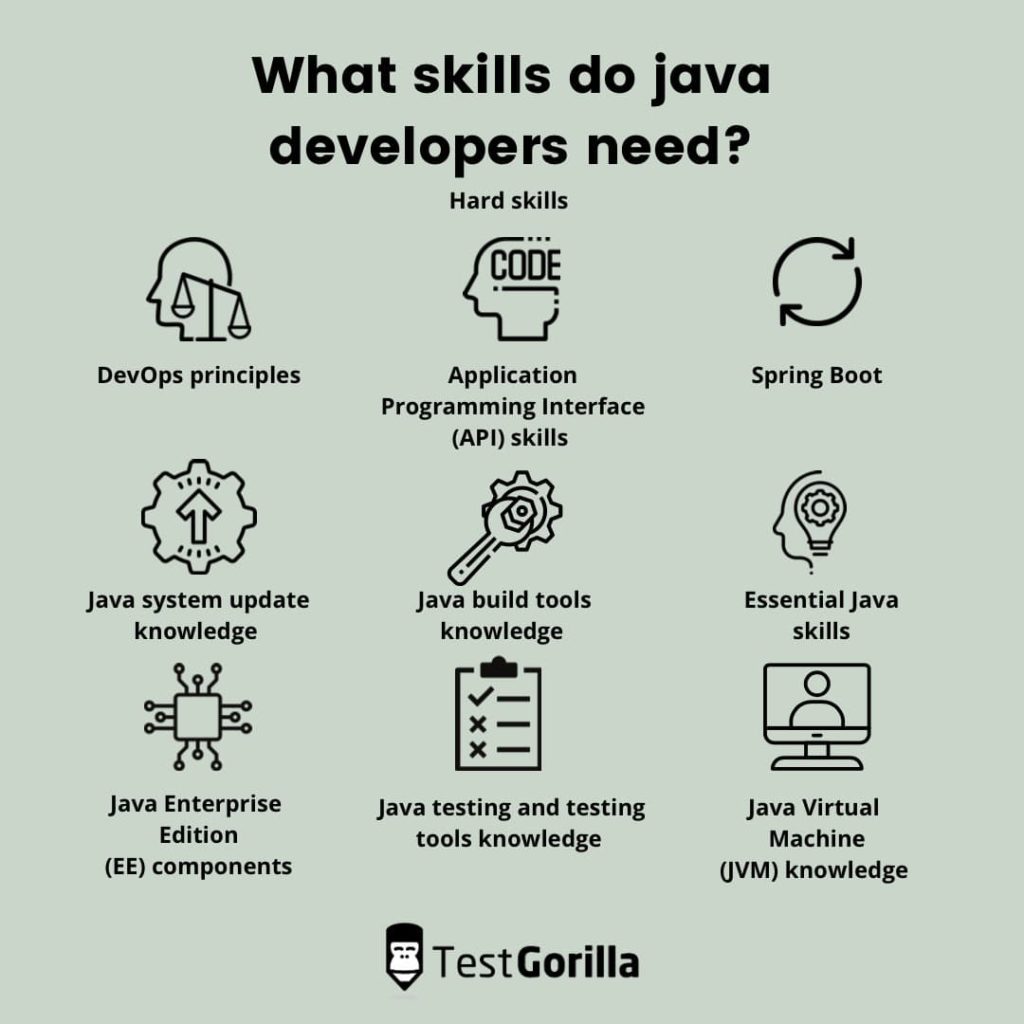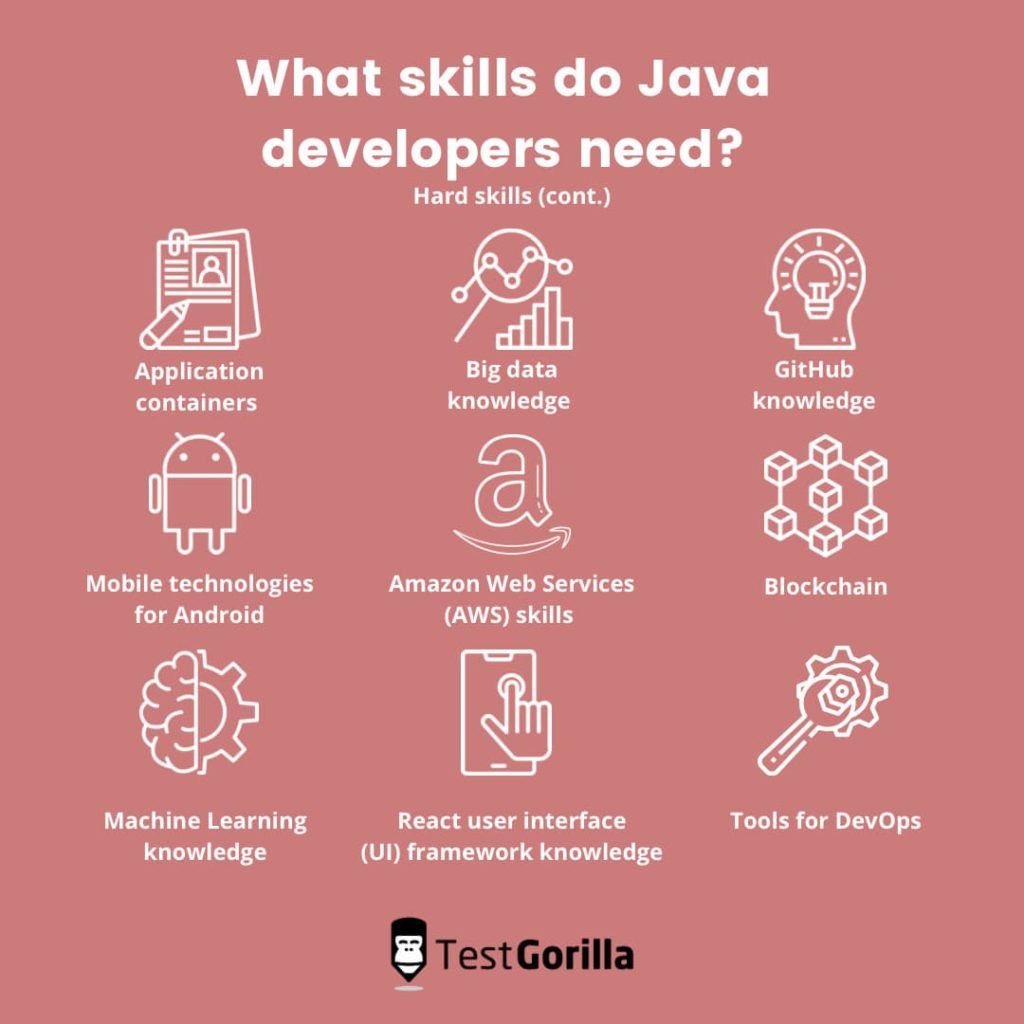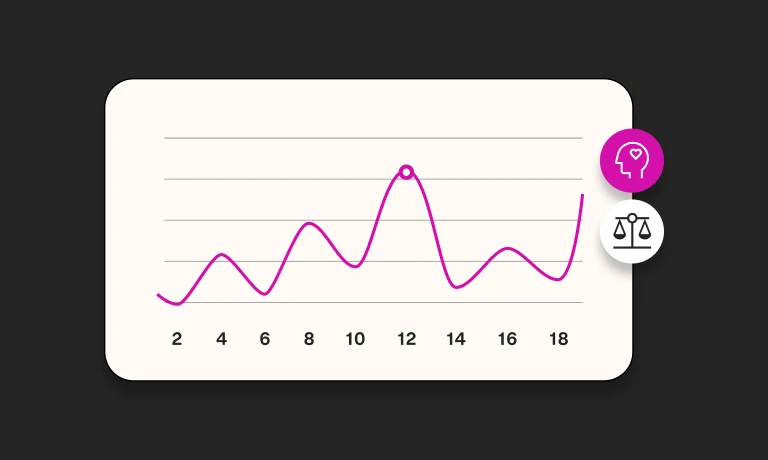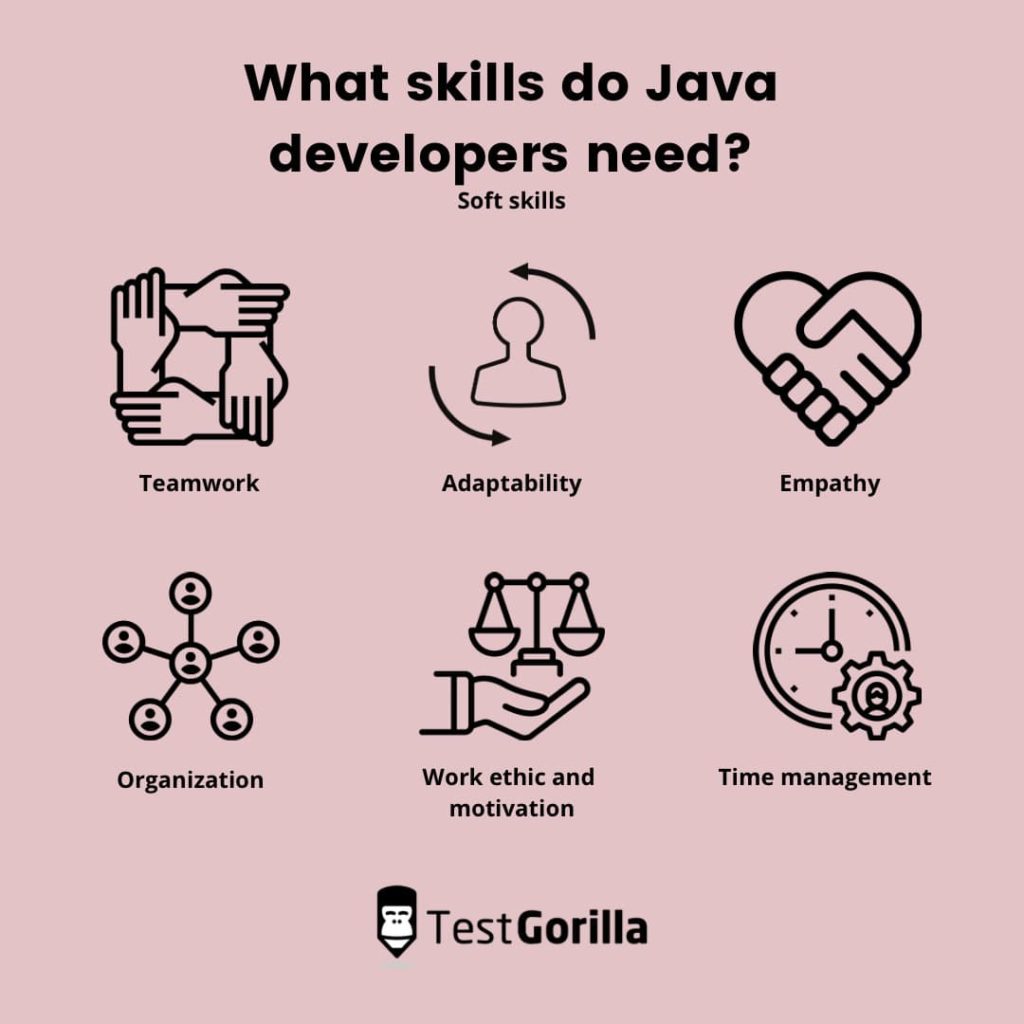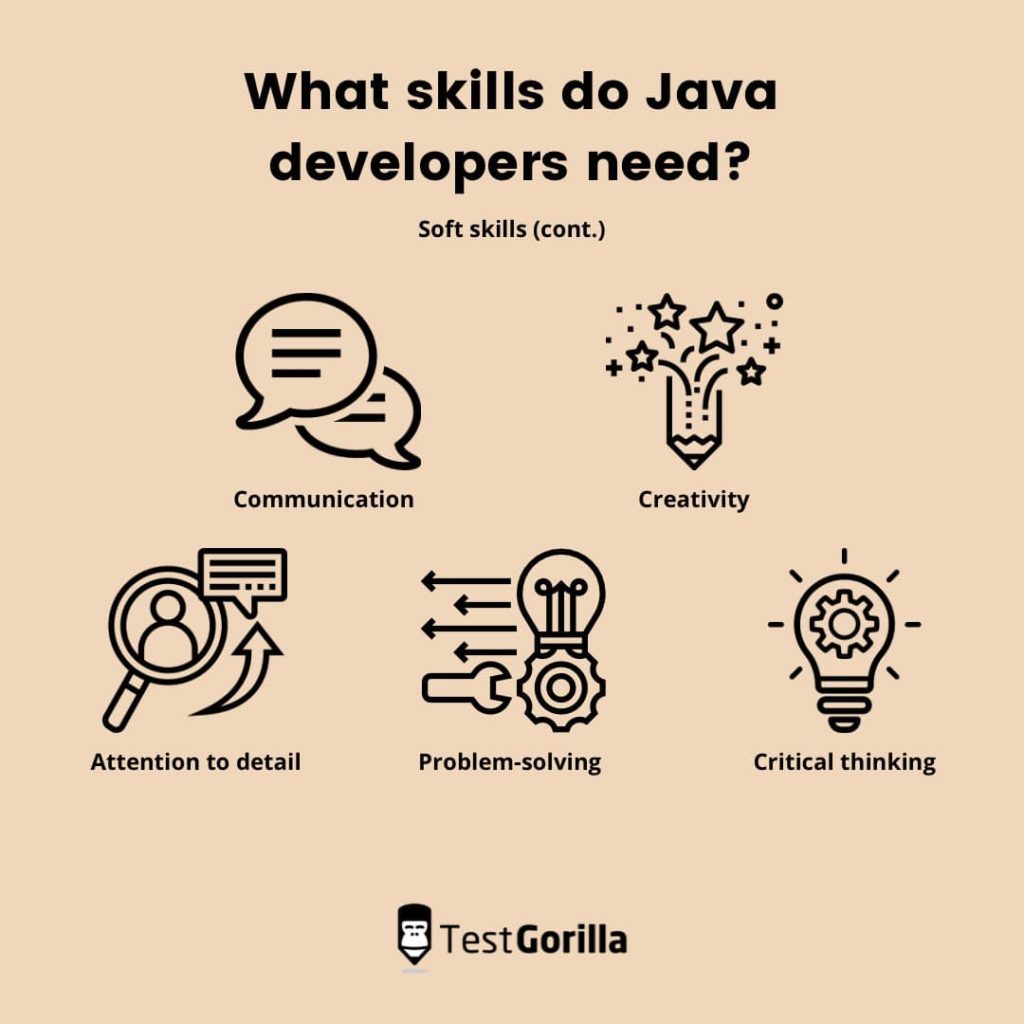Are you looking for a developer with exceptional Java skills?
If so, you’re not alone.
Globally, many hiring managers identify Java skills as a priority for new developer candidates.
Finding talent with the right skills can be challenging, but you’ll find that hiring a suitable candidate is easier once you know which Java skills are most important.
With this in mind, let’s take a look at the 29 essential skills for Java developers.
We’ve divided these into hard and soft skills in what follows below.
What is a Java developer?
Java developers are software and application programmers. They may work with software engineers and website developers to fulfill four main responsibilities:
Designing Java-based applications
Creating websites
Creating software
Managing them using the Java programming language
A Java developer must contribute to the whole product development lifecycle.
They are responsible for noticing issues, analyzing them, and fixing them efficiently, which involves user requirement documentation and testing for quality assurance purposes.
What skills do Java developers need?
When hiring a prospective employee to write, analyze, and test code written in Java, there are a variety of essential skills you should keep in mind.
Here’s our list of 29 skills for Java developers you should look for.
The best insights on HR and recruitment, delivered to your inbox.
Biweekly updates. No spam. Unsubscribe any time.
18 hard skills to look for in Java developers
We’ll start with the hard skills that Java developers require during the product development lifecycle.
1. Application Programming Interface (API) skills
There are a few crucial APIs that Java developers should know. Some of the most important are:
JSON processing APIs
Logging APIs
XML processing APIs
To take one example, some of the specific libraries for XML processing APIs that developers should be aware of include Stax and JAXB.
2. DevOps principles
DevOps principles are crucial. They can enhance communication and lead to a boost in productivity. Java developers familiar with DevOps principles can maintain current product deployments and develop new ones faster.
3. Spring Boot
Spring Boot is vital for Java developers as it facilitates web application development with an agile prototyping approach. It offers support to JAR files, provides metrics, and has several plugins, helping to reduce costs and increase the quality of projects.
4. Java system update knowledge
Although Java system updates once occurred less frequently, they are now often carried out on a six-monthly basis. Your candidates should understand that Java systems are regularly updated, and they should know the current versions.
5. Essential Java skills
Some specific Java skills are fundamental for using the programming language efficiently. These include design pattern skills, such as behavioral, structural, and creational patterns, and abstract classes knowledge.
6. Java build tools knowledge
To complete source code application automation, Java developers should know how Java build tools work and be able to use several of them effectively. Some of the key examples of such tools include:
Nexus
Apache
CMake
Sonatype
7. Java Enterprise Edition (EE) components
Building server-side apps requires EE components and technology. Java developers should understand what EE components are and how they work. Examples of EE components include Java Server Pages and Java Beans.
8. Java testing and testing tools knowledge
Completing app or software testing processes is made easier with Java testing tools. Are your candidates experienced with tools such as Serenity, Junit, and JBehave? Can they complete programming testing with separate databases?
Our Android Development Using Java test can help you evaluate a candidate's practical skills in this vital area.
9. Java Virtual Machine (JVM) knowledge
Java developers should understand what a JVM is and know they can use it to conduct code verification and execution. A JVM makes it possible to run a Java program and even offers a runtime environment that developers can use to execute Java bytecode.
10. Application containers
Do your candidates know what application containers are used for? Are they aware that they can use application containers to run software program components, and can they name any commonly used app containers?
11. Big data knowledge
To handle the large amounts of data stored in the cloud, Java developers must know how to use critical big data platforms, including Cloudera, Tableau, Oracle, and MongoDB.
12. Machine learning knowledge
Machine learning algorithms help with various application domains. They also help Java developers handle large datasets that evolve, in addition to data streams and data that Internet of Things devices produce.
13. GitHub knowledge
GitHub is a code version control crucial for keeping track of developers’ changes to their work. Since they can manage their code efficiently using GitHub skills and tools, Java developers must know how to use it effectively.
14. React user interface (UI) framework knowledge
Are your candidates familiar with the React UI framework for building a software program in Java? The React UI framework is also essential for creating web and mobile apps.
15. Mobile technologies for Android
Kotlin is a powerful mobile technology for developing Android applications. This cross-platform language works with Java and uses type inference, making its syntax concise compared with Java. Since Java developers can use Kotlin to write fewer lines of code and achieve similar results, they should have a good working knowledge of the programming language.
16. Amazon Web Services (AWS) skills
If you need to hire an AWS Java developer, your candidates must be familiar with Amazon Web Services. AWS is useful for Java developers because developing and running Java applications in a virtual environment can make migrations easier.
17. Blockchain
To enhance system security, Java developers must understand what blockchain is and recognize its advantages to enhance system security. For example, do your candidates know that blockchains can help them keep track of computer network transactions?
18. Tools for DevOps
In addition to the best practices for programming – specifically DevOps principles – tools for DevOps can help developers carry out continuous integration. Exceptional knowledge of DevOps tools enables Java developers to conduct continuous deployment easily.
11 soft skills to look for in Java developers
It’s also essential to pay attention to your applicants’ soft skills when hiring Java developers.
Here are 11 soft skills you should look for when evaluating candidates for your vacancy.
1. Teamwork
Building a team that works well is vital for software development. So, in addition to the technical skills we have described, hiring candidates with good teamwork skills is crucial.
With the right teamwork skills, Java developers can collaborate with other developers in Scrums to complete projects more efficiently.
2. Adaptability
Java system versions are constantly being rolled out, so your Java developers will have plenty of new tasks to complete. Can your candidates adjust to the tweaks and version alterations made to the Java system and use the technology to complete new tasks for their clients?
Being adaptable can help Java developers handle unexpected changes and be prepared to solve new challenges.
3. Empathy
Empathy is important for grasping a task’s requirements through understanding the audience or client using the software. It is, therefore, a necessary skill that facilitates the Java developers’ role.
Empathy is also critical because it helps them collaborate with team members and relate to their concerns. Combining empathy and teamwork helps Java developers support their team.
It’s also vital that Java developers can combine pragmatism with empathy to build products that meet the requirements and address the concerns of the end-user.
4. Organization
Java developers should know the importance of effective organization. Using a code version control like GitHub or GitLab can make this easier since developers can use them for task management. Candidates might combine these tools with other task management tools to stay organized and manage their workload efficiently.
5. Time management
Time-management skills include task prioritization, task planning, execution, and taking on board feedback (or reflecting on tasks). All these skills facilitate task management and improve productivity.
Java developers who manage their time efficiently avoid prioritizing tasks that yield minimal results, focusing instead on tasks with more significant and positive impacts.
6. Work ethic and motivation
Work ethic and motivation characteristics can contribute to a Java developer’s productivity and success. The more their motivators align with your organization, and the more they perceive their work to be meaningful, the more likely they will perform better and remain in the role.
Are your Java developers motivated, and do they have the work ethic to perform well, complete tasks efficiently, and complete tasks within set milestones?
7. Communication
There are four key sub-skills that indicate top communication skills in your candidate.
Java developers know how to communicate in Java’s written form and how to interpret non-verbal cues, clarify the steps required to perform a task, and use etiquette when communicating.
When using communication tools, all these sub-skills help Java developers share information more effectively with team members. Combined with empathy, communication skills can help with problem-solving and conflict resolution.
Communication skills also include active listening. This skill ensures that teams work together more efficiently and team members remain engaged and focused on the required task because they understand each others’ concerns.
8. Problem-solving
A core soft skill for developers is problem-solving. Java developers will use problem-solving skills throughout the whole development lifecycle. From spotting problems and brainstorming answers to thinking critically about implementing solutions and delivering a product that satisfies end-users, problem-solving skills simplify project completion.
9. Creativity
Creativity in the face of complex client requirements helps Java developers to come up with software solutions that meet them. Using creative skills to program in Java also involves sharing ideas that might not have been considered since teamwork increases creativity and creativity, in turn, aids other team members.
10. Attention to detail
Do your candidates have good attention to detail? Can they focus on visual information and use it to complete a programming task in Java?
Since visual cues and information are important when coding, it’s important to look for Java developers with good attention to detail.
11. Critical thinking
Do your candidates have the right critical-thinking skills for your Java developer position?
Can they use deductive reasoning, understand relationships between cause and effect, and make well-thought-out decisions based on analytical skills?
Critical thinking is necessary for Java developers and should be combined with problem-solving skills and attention to detail to evaluate complex end-user requirements, think of unique answers to the problem, and solve the issue by considering all its aspects.
Hire Java developers using Java coding tests
Hiring Java developers isn’t easy, but remaining aware of the essential Java skills is a step in the right direction.
The best way to find and hire Java developers for your organization is to keep the essential Java skills in mind and ask candidates to complete a Java assessment.
While you may choose to use Java code tests on their own, TestGorilla’s Java assessment will enable you to evaluate the most crucial technical and soft skills for your Java developer vacancy.
Start hiring a Java developer for your team with TestGorilla’s help today. Get started for free today and start making better hiring decisions, faster and bias-free.
You've scrolled this far
Why not try TestGorilla for free, and see what happens when you put skills first.


